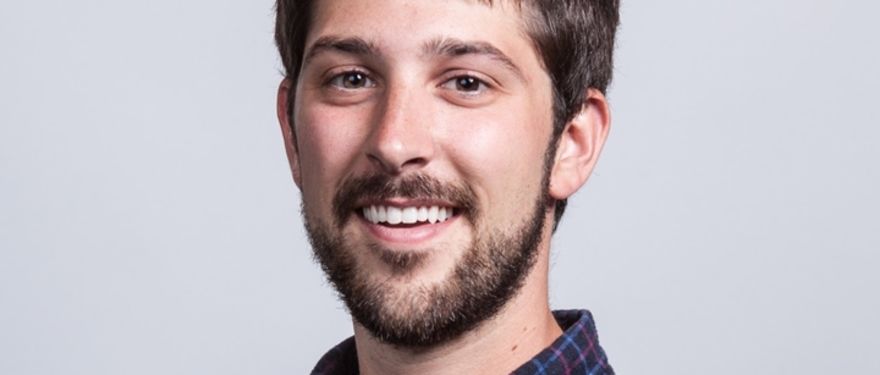This is a repost from the recruiting blog.
For John Bracaglia, his academic and professional careers have been driven by two themes: “machine learning and behavioral economics,” he says. “The two work together. Machine learning is about how computers understand information, while behavioral economics is about how people understand information.”
As an undergraduate at William & Mary, he interned at Google, where he gained an insider’s perspective on a new technology, Google Glass. Bracaglia wrote SQL for the Glass team, whose challenging public response inspired an important reflection. “We have a lot of interesting emerging technologies,” he says, “but maybe, too often, we overlook human behavior.”
Upon graduation, Bracaglia’s internship at Google segued into a full-time position working within YouTube. “Google is the world’s largest machine learning company,” he says. “I was aware of a real diversity of applications, from consumer apps to research in things like healthcare and energy management. The philosophical implications are enormous: machine learning is going to change everything.”
In addition to his core assignments, Bracaglia took advantage of Google’s “20% Projects” policy to work on a side interest, a machine learning tool to help small businesses identify promising business opportunities. “Google has useful information on foot-traffic patterns, plus satellite imagery and other data that can help entrepreneurs select the most promising placements.” Today, the technology is launched externally for small businesses.
After a corporate-wide restructuring, Bracaglia moved to Alphabet’s life science firm, Verily, where he worked on Liftware, a counterweighted spoon that maintains stability – a critical aid to people with central tremors, often with Parkinson’s, that would otherwise make independent eating difficult or impossible. “We could collect a lot of information on people’s tremors as they use the spoon” says Bracaglia, “giving us insight into how people use it, how their behavior changes over time, and how they adapt.”
Bracaglia’s last Google assignment, before embarking on his MBA, was one of the corporation’s flagship projects - the Baseline Study. The project is a longitudinal study of human health that he describes as “like a Google Earth of the body. By accumulating cross-sectional data – such as blood sugar levels, pulse rates, and more – we can understand each person’s baseline health, making it easier to detect signals of disease before they fully manifest themselves. It’s a proactive versus reactive approach.”
Applying a general management perspective to machine learning possibilities
“I applied to HBS,” Bracaglia says, “because my future is all about how we apply technology to problems. At Harvard, there are enormous opportunities to collaborate with students and faculty across many schools, like the Harvard Graduate School of Design. Few schools have that kind of breadth and depth.”
Through his work with HBS’ Design and Coding Clubs, Bracaglia keeps in close proximity to the critical design and engineering aspects of his ambitions. But it’s the school’s general management focus that he believes will prove most useful.
“As a general manager, you’re someone who is ‘t-shaped’: deep in one field, but with a mastery of the many different aspects of being a business leader. That leadership requires not just an understanding of the technology, but of the importance of people and aligning the company to bring an ambitious technical vision into fruition. With a general management perspective, I want to find the machine learning strategy that avoids the pitfalls while fulfilling the promise.”
Eventually, Bracaglia would like to start his own business from the ground up after gaining four or five years of management experience in an established enterprise. He anticipates a dynamism in his career that will remain anchored in his personal sense of mission.
“I’m very interested in health care because of the experience of growing up with my late twin brother, who had cerebral palsy,” Bracaglia says. “I saw firsthand how difficult it was to be encumbered by complex technology and procedures. When I think of the impact machine learning can have on lives, I think of my brother, my family, and others for whom technology can make a truly important difference.”

